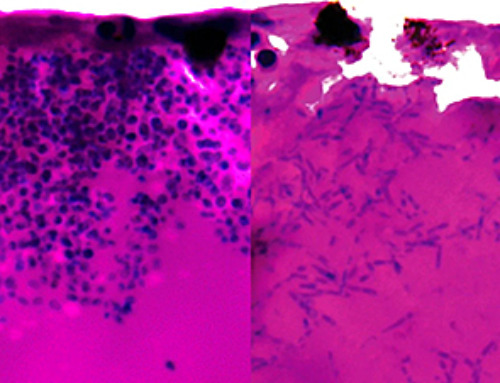- New variants of SARS-CoV-2 are more virulent and transmissible than the original variant of the virus.
- Health experts associate these variants of concern (VOCs) with increased risk of hospitalization, intensive care unit (ICU) admission, and death.
- Vaccination reduces the risks of severe disease and death even with the VOCs.
- However, even with increased vaccination, control measures are needed to reduce the spread of the VOCs.
A Canadian study has found a link between the new variants of SARS-CoV-2, particularly the Delta variant, and an increased risk of severe disease and death.
The retrospective study, by the University of Toronto and appearing in the Canadian Medical Association Journal (CMAJ), looked at 212,326 cases in Ontario from February 7 to June 27, 2021. The study authors compared the risks of hospitalization, ICU admission, and death from the VOCs with those risks from non-VOC SARS-CoV-2 strains.
The researchers screened the cases for Alpha, Beta, Gamma, and Delta VOCs. Non-VOC infections made up 22.4% of the cases. More than three-quarters of the cases were Alpha, Beta, or Gamma, while 2.8% were probably Delta.
Alpha, Beta, and Gamma variants have a mutation that increasesTrusted Source transmission, while Delta has a mutation that increases its ability to replicate.
The authors note that before May 2021, there was no routine screening for the Delta variant, so it is likely that the numbers underestimate the prevalence of this variant.
Increased risk from the Delta variant
The present study found that all VOCs increased people’s risk of hospitalization, ICU admission, and death due to COVID-19.
However, the highest risks were from the Delta variant. In the Delta cases, there was a 108% increase in the risk of hospitalization, a 235% increased risk of ICU admission, and a 133% higher risk of death, compared with the original variant.
These effects were present even when the researchers adjusted the data for factors such as age, sex, vaccination status, and comorbidities.
Prof. William Schaffner, infectious diseases specialist at the Vanderbilt University Medical Center in Nashville, TN, commented:
“This important study from Canada reinforces the serious impact the Delta variant is having. It is well recognized that Delta is more contagious than other virus variants. This new study convincingly reinforces the finding that it also causes more severe disease.”
The Delta variant is now the dominant variant in the European Union, the United Kingdom, and the United States.
The findings of the present study corroborate those of the studies in EnglandTrusted Source, ScotlandTrusted Source, and Singapore that have also shown increased risks from the Delta variant.
Speaking to Medical News Today, Dr. Christopher Coleman, assistant professor of infection immunology at the University of Nottingham in the U.K., highlighted the international relevance of the study.
He said, “Although this [Canadian] study has some limitations, as acknowledged by the authors, this is exactly the kind of study that helps ‘build a picture’ by showing that similar observations can be observed in a lot of different circumstances.”
“It is not something unique about the U.K. that means the Delta variant is associated with more dangerous infections only here,” he added.
News
Scientists Unlock a New Way to Hear the Brain’s Hidden Language
Scientists can finally hear the brain’s quietest messages—unlocking the hidden code behind how neurons think, decide, and remember. Scientists have created a new protein that can capture the incoming chemical signals received by brain [...]
Does being infected or vaccinated first influence COVID-19 immunity?
A new study analyzing the immune response to COVID-19 in a Catalan cohort of health workers sheds light on an important question: does it matter whether a person was first infected or first vaccinated? [...]
We May Never Know if AI Is Conscious, Says Cambridge Philosopher
As claims about conscious AI grow louder, a Cambridge philosopher argues that we lack the evidence to know whether machines can truly be conscious, let alone morally significant. A philosopher at the University of [...]
AI Helped Scientists Stop a Virus With One Tiny Change
Using AI, researchers identified one tiny molecular interaction that viruses need to infect cells. Disrupting it stopped the virus before infection could begin. Washington State University scientists have uncovered a method to interfere with a key [...]
Deadly Hospital Fungus May Finally Have a Weakness
A deadly, drug-resistant hospital fungus may finally have a weakness—and scientists think they’ve found it. Researchers have identified a genetic process that could open the door to new treatments for a dangerous fungal infection [...]
Fever-Proof Bird Flu Variant Could Fuel the Next Pandemic
Bird flu viruses present a significant risk to humans because they can continue replicating at temperatures higher than a typical fever. Fever is one of the body’s main tools for slowing or stopping viral [...]
What could the future of nanoscience look like?
Society has a lot to thank for nanoscience. From improved health monitoring to reducing the size of electronics, scientists’ ability to delve deeper and better understand chemistry at the nanoscale has opened up numerous [...]
Scientists Melt Cancer’s Hidden “Power Hubs” and Stop Tumor Growth
Researchers discovered that in a rare kidney cancer, RNA builds droplet-like hubs that act as growth control centers inside tumor cells. By engineering a molecular switch to dissolve these hubs, they were able to halt cancer [...]
Platelet-inspired nanoparticles could improve treatment of inflammatory diseases
Scientists have developed platelet-inspired nanoparticles that deliver anti-inflammatory drugs directly to brain-computer interface implants, doubling their effectiveness. Scientists have found a way to improve the performance of brain-computer interface (BCI) electrodes by delivering anti-inflammatory drugs directly [...]
After 150 years, a new chapter in cancer therapy is finally beginning
For decades, researchers have been looking for ways to destroy cancer cells in a targeted manner without further weakening the body. But for many patients whose immune system is severely impaired by chemotherapy or radiation, [...]
Older chemical libraries show promise for fighting resistant strains of COVID-19 virus
SARS‑CoV‑2, the virus that causes COVID-19, continues to mutate, with some newer strains becoming less responsive to current antiviral treatments like Paxlovid. Now, University of California San Diego scientists and an international team of [...]
Lower doses of immunotherapy for skin cancer give better results, study suggests
According to a new study, lower doses of approved immunotherapy for malignant melanoma can give better results against tumors, while reducing side effects. This is reported by researchers at Karolinska Institutet in the Journal of the National [...]
Researchers highlight five pathways through which microplastics can harm the brain
Microplastics could be fueling neurodegenerative diseases like Alzheimer's and Parkinson's, with a new study highlighting five ways microplastics can trigger inflammation and damage in the brain. More than 57 million people live with dementia, [...]
Tiny Metal Nanodots Obliterate Cancer Cells While Largely Sparing Healthy Tissue
Scientists have developed tiny metal-oxide particles that push cancer cells past their stress limits while sparing healthy tissue. An international team led by RMIT University has developed tiny particles called nanodots, crafted from a metallic compound, [...]
Gold Nanoclusters Could Supercharge Quantum Computers
Researchers found that gold “super atoms” can behave like the atoms in top-tier quantum systems—only far easier to scale. These tiny clusters can be customized at the molecular level, offering a powerful, tunable foundation [...]
A single shot of HPV vaccine may be enough to fight cervical cancer, study finds
WASHINGTON -- A single HPV vaccination appears just as effective as two doses at preventing the viral infection that causes cervical cancer, researchers reported Wednesday. HPV, or human papillomavirus, is very common and spread [...]





















